10 Foods to Naturally Replenish Electrolytes

Sure, you know that you’re supposed to replenish your electrolytes after a workout. However, reaching for that sports drink filled with refined sugar can do more bad than good. Find out how to recharge your electrolytes naturally with these 10 healthy foods.
If you don’t monitor your fluid or electrolyte intake after sweating, you could start to experience troubling symptoms like chronic fatigue and heart palpitations. This is especially common if your diet is lacking in fresh produce.
Read on to discover natural electrolyte sources that will keep you hydrated and performing your best no matter how many fluids you’re losing.
What Are Electrolytes?
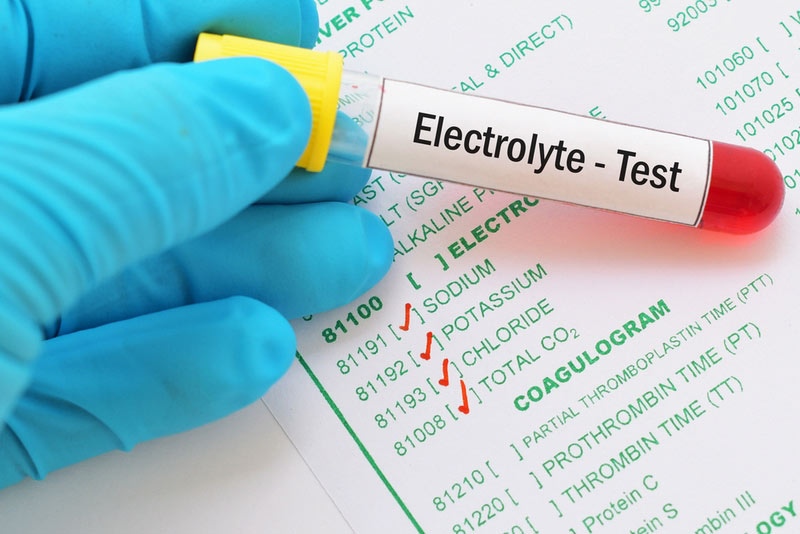
Electrolytes are essential nutrients and chemicals found in food that are responsible for many critical functions in our bodies. These natural chemicals carry an electric charge (hence the name) when they come into contact with water, which is why they’re found in abundance in our bodily fluids like urine, sweat, and blood.
Without electrolytes and their ability to carry electric charges from our brains throughout our nervous system, our bodies wouldn’t be able to signal our nerves to contract our muscles, regulate our heartbeats, maintain our fluid balance, or keep our cells dividing normally.
The reason we have to replenish electrolytes is because they are consistently lost through sweat and urination. And the more we exercise or expel fluids, the more we lose.
Some of the major electrolytes and their functions are:
- Calcium: Nerve signaling, muscle contractions, cell division, bone and teeth formation. (1)
- Magnesium: Stabilizing heart rhythm, nerve signaling, central nervous system regulation. (2)
- Potassium: Maintain blood pressure, nerve signaling, maintain normal heart rhythms. (3)
- Sodium: Maintain fluid balance, proper nerve function. (4)
- Phosphate: Energy production, bone formation. (5)
- Chloride: Maintain fluid balance. (6)
Symptoms of Low Electrolyte Levels

It can be relatively easy to fall into an electrolyte imbalance when you consider our modern food supply: most of the foods we consume are packaged and processed, containing abnormally high levels of sodium while lacking potassium, magnesium, and other essential nutrients. Unless you consistently refuel with foods rich in electrolytes other than sodium, you set yourself up for an electrolyte imbalance that can create some serious issues, such as:
- Anxiety
- Trouble concentrating
- Blood pressure swings
- Heart palpitations
- Digestive issues like constipation or diarrhea
- Headaches
- Fatigue
- Dizziness
What Causes Electrolyte Imbalances
Aside from eating too many processed foods rich in sodium and lacking in other electrolytes, there are a few other situations that can cause an electrolyte imbalance.
These include being sick with symptoms that cause fluid loss, such as diarrhea, vomiting, and excessive sweating; certain medications or diuretics; kidney disorders; chemotherapy; and malabsorption of nutrients in your gut.
Why You Should Avoid Electrolyte Drinks
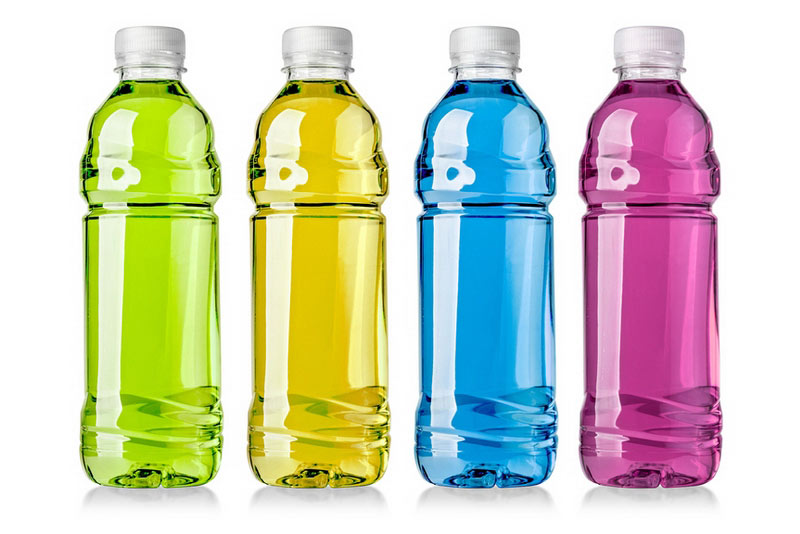
Popular electrolyte and sports drinks might seem like a great grab-and-go option for an easy post-sweat boost when you’re in a rush. However, these drinks are filled with harmful ingredients.
Let’s look at Gatorade as an example. For starters, Gatorade contains roughly 14 grams of unnatural sugars per bottle, crafted from refined syrups, sucrose, glucose, and fructose that can send your blood sugar soaring. Not to mention, these are also a source of empty calories void of nutritional value: a huge negative if you’re trying to lose weight.
In addition, Gatorade also contains artificial sweeteners like saccharin and acesulfame potassium, which have been shown in studies to alter your gut bacteria in a way that promotes glucose intolerance, obesity, and diabetes. (7)
To make matters even worse, the range of colors you see in each bottle of Gatorade and other brands are created from food dyes like FD&C Blue 1. These dyes have been implicated in a number of studies to be linked to cancer development, behavior problems, and a whole host of other nasty side effects. (8)
10 Foods That Naturally Replenish Electrolytes
Replenishing electrolytes with whole foods is the optimal choice if you want to avoid long-term health issues from chemicals in electrolyte drinks. Below are 10 foods that are easy to prepare that can get you all the electrolytes you need.
1. Avocados
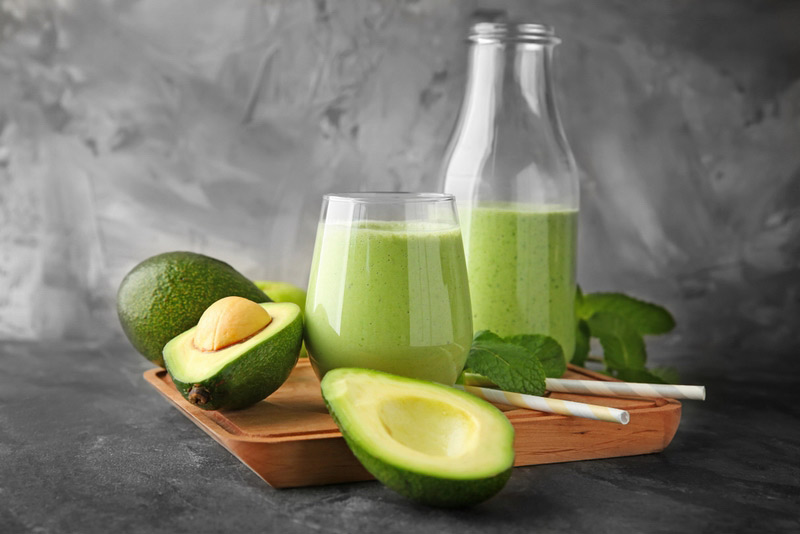
Avocados are an extremely versatile fruit that is loaded with potassium and magnesium, two of the key electrolytes you need to replenish after a vigorous sweat session. In addition to supplying electrolytes, studies on avocado show that avocado can lower cholesterol, improve triglycerides, and even help prevent aging. (9)
Try adding avocado to smoothies, salads, or even on their own with a dash of sea salt for a quick snack.
2. Spinach
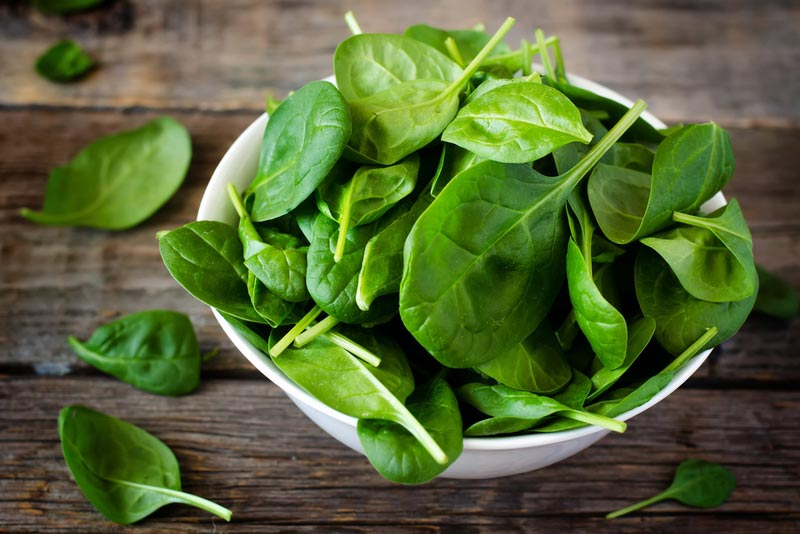
Spinach is rich in many electrolytes, most notably potassium and magnesium. In fact, spinach contains even more potassium than bananas, with one cooked cup containing roughly 40 percent of your daily requirements. (10) In addition, you’ll also get a huge range of nutrients alongside your potassium in these non-assuming greens, including vitamins A and K, copper, vitamin C, and more.
Sauté spinach, add it to smoothies, or use it as a salad base.
3. Butternut Squash
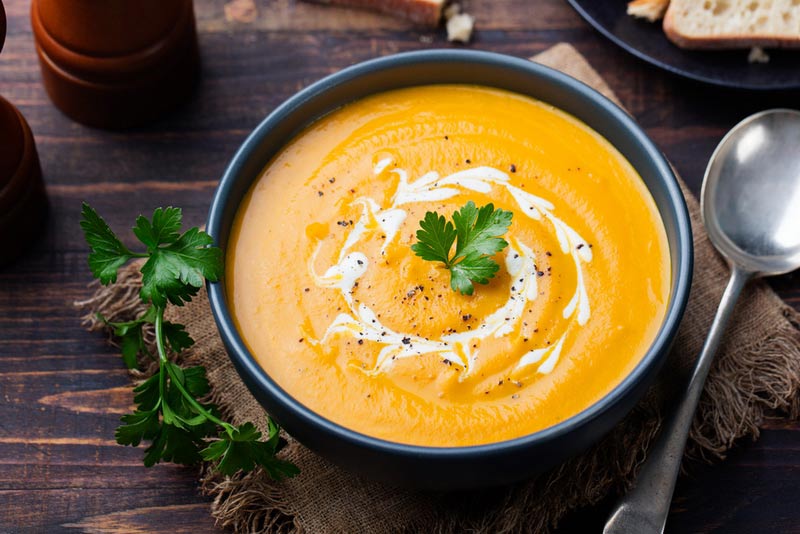
Butternut squash makes a rich and filling addition to any dish, and adds a hefty dose of potassium, magnesium, and manganese (which helps in the absorption of your other important electrolyte, calcium). (11)
Add butternut squash to salads, purée it and make a squash soup, or even add chunks of it to smoothies (don’t worry, its sweet flavor and smoothie texture will mesh well with fruits and greens).
4. Beet Greens
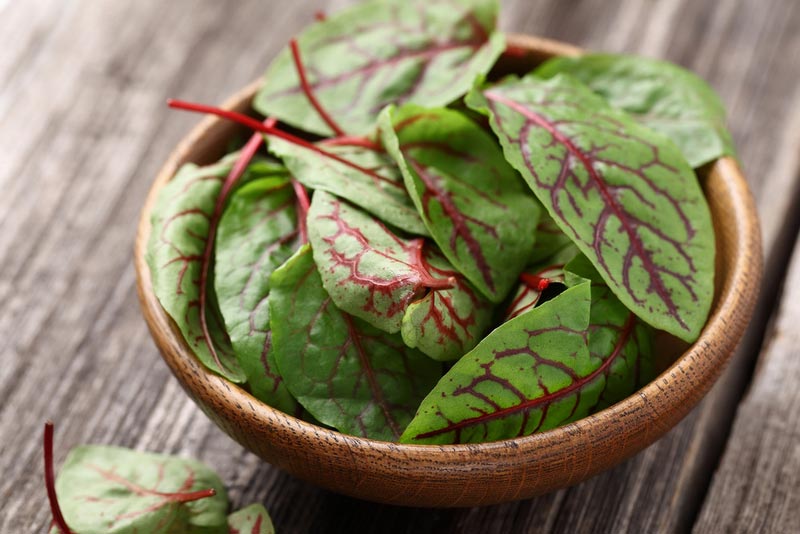
Beet greens, the edible leaves topping beetroot veggies, are one of the best types of greens you can consume for high amounts of calcium and magnesium. In fact, compared to turnip and mustard greens, beet greens have been shown to contain not only more of both electrolytes, but also other nutrients like vitamins K, A, and C. (12)
Add beet greens to salads, sauté them with collard greens, or add them to smoothies or juice them for a quick burst of electrolytes.
5. Wild-Caught Salmon
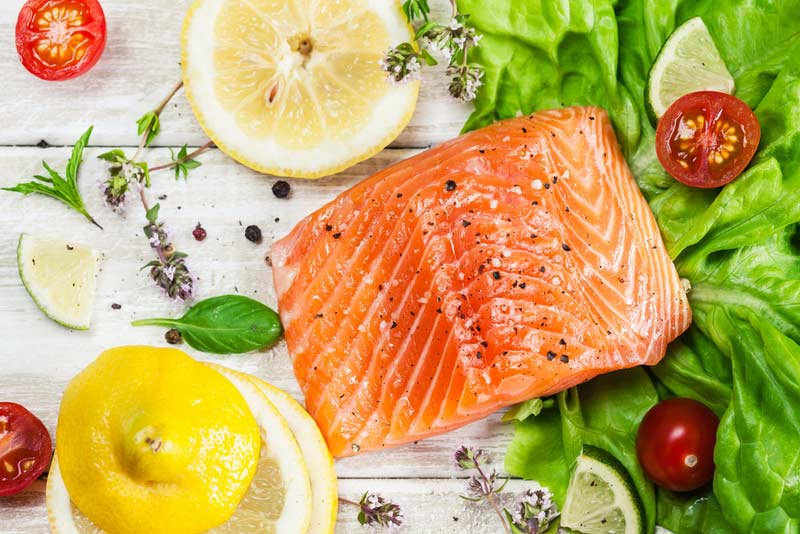
Salmon probably isn’t the first food that comes to mind when you consider electrolyte foods. However, wild salmon is rich in phosphate, the electrolyte that is found in protein foods. In addition, salmon is also rich in calcium and beneficial omega-3s for bone building and preventing inflammation. (13, 14)
Try adding wild salmon to a bed of sautéed beet greens and butternut squash for a post-workout meal.
6. Bananas
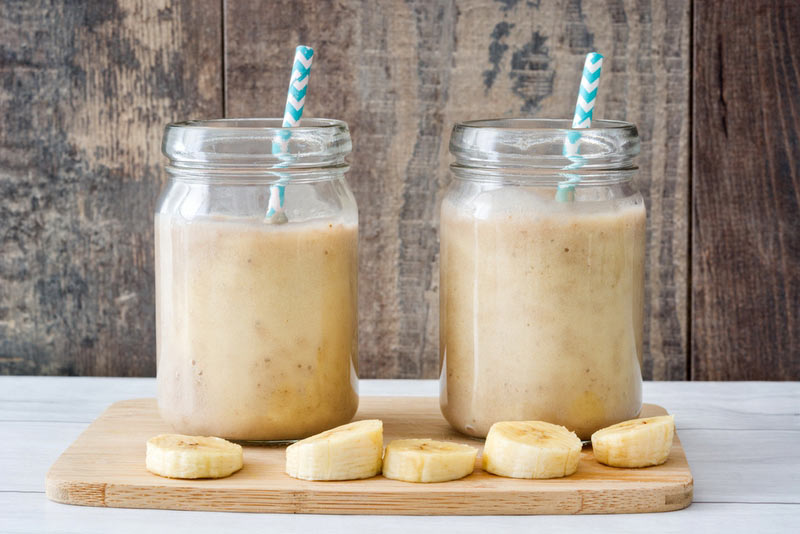
Bananas contain ample amounts of potassium. Yet many don’t realize that they’re also rich in magnesium and phosphorous (another mineral that plays a role in electrolyte balance). (15)
Bananas are an excellent option for replenishing electrolytes when you don’t have time to grab a meal or make a smoothie. They’re the perfect snack you can tote around in your gym bag or to work!
7. Coconut Water
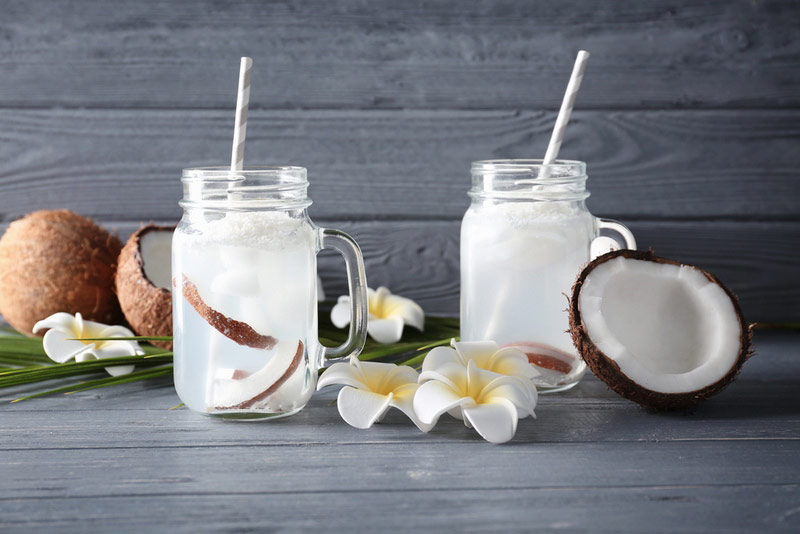
Coconut water (not to be confused with coconut milk) is the clear liquid of young green coconuts. It has a sweet, nutty taste, and is nature’s sports drink, containing the ideal ratios of potassium and sodium.
Studies show that coconut water performs as well as sports drinks for rehydration. (16) Either try your hand at cracking a whole coconut, or grab a prepackaged version at your local health food store. Just be sure that the brand you buy is 100 percent pure coconut water and not from concentrate.
You can even make your own DIY Natural Sports Drink using coconut water, lemons, honey, and sea salt!
8. Swiss Chard
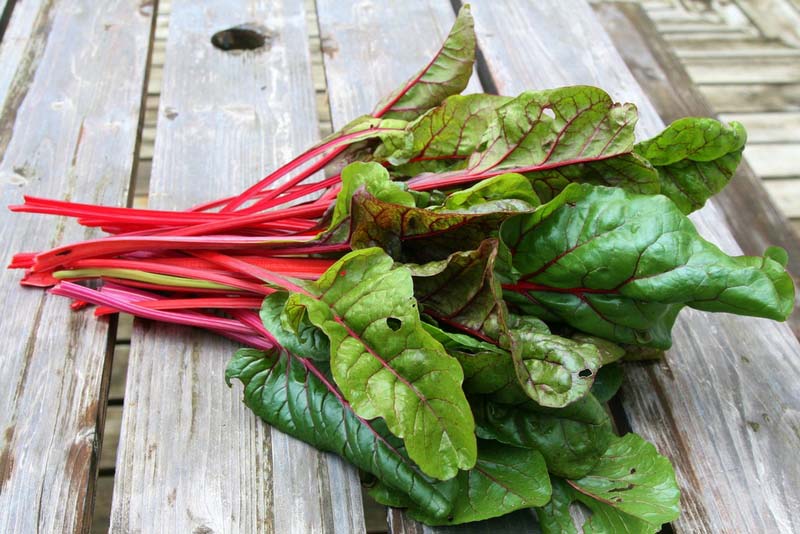
Swiss chard contains three times as much potassium as kale and mustard greens, making it an excellent option for offsetting sodium intake. (17)
Add Swiss chard to a salad or stir-fry. Boost the electrolyte content by having it with salmon or butternut squash and avocado.
9. Beets
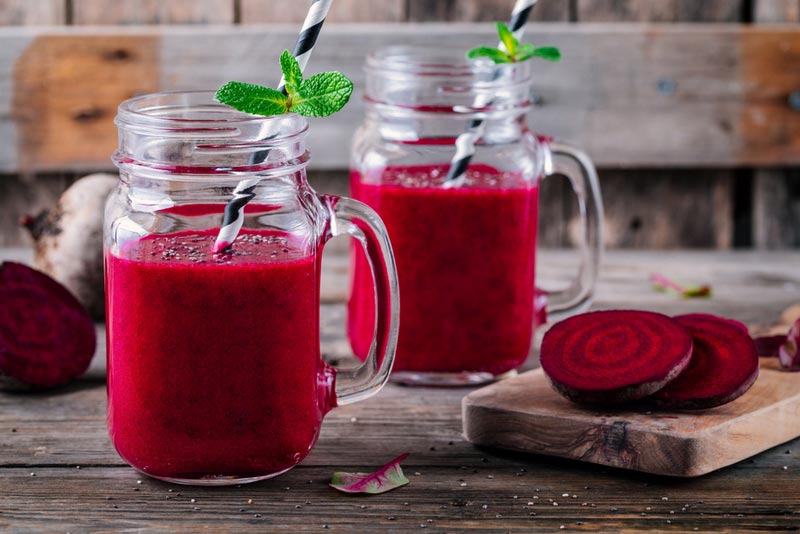
You can get a double dose of electrolytes by eating beets with your beet greens. Beets are rich in potassium and magnesium, as well as other beneficial nutrients that fuel efficient sweat sessions like nitric oxide. (18)
Roast the beets together with butternut squash and greens with a side of salmon for a complete meal. Otherwise, try juicing the beets for a quick electrolyte replacement drink.
10. Raisins
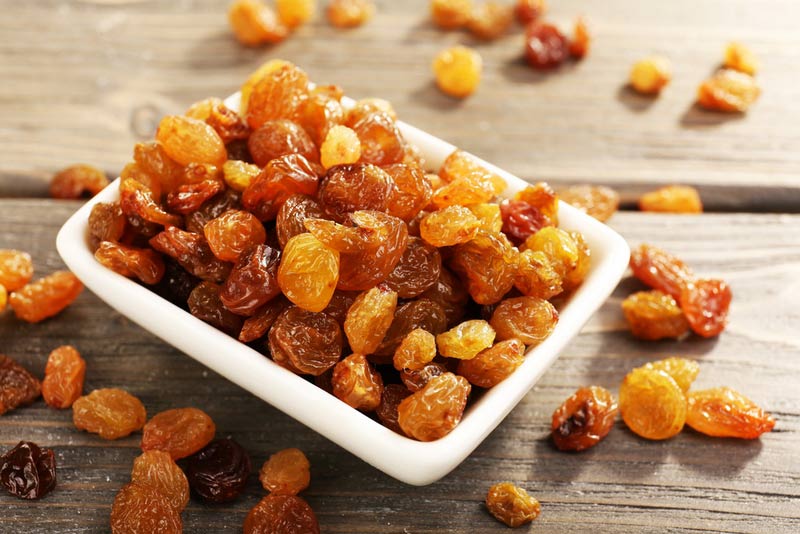
Raisins are another easy, portable option for refueling electrolytes. They’re packed with potassium, calcium, and magnesium, making them an all-around great choice for eating plain, on salads, or added to puddings or smoothies. (19) Just make sure to eat raisins in moderation.
Other Options
Another option for a quick electrolyte boost is to purchase a trace mineral supplement that you can add directly to your water when you need a boost. Make sure you’re buying pure trace minerals, and not packets or powders that contain artificial sweeteners or chemicals.
You can also consider supplementing with a natural magnesium and calcium powder at night. This will ensure you’re getting the proper ratios throughout the day, and can also help lower your stress and anxiety levels.
As you can see, getting enough electrolytes is relatively easy as long as you stick to nutrient-dense, fresh produce.

The post 10 Foods to Naturally Replenish Electrolytes appeared first on PaleoPlan.
from PaleoPlan https://ift.tt/2KZawar
Entry Published : July 12, 2018 at 09:46AM
EntryContent :

Sure, you know that you’re supposed to replenish your electrolytes after a workout. However, reaching for that sports drink filled with refined sugar can do more bad than good. Find out how to recharge your electrolytes naturally with these 10 healthy foods.
If you don’t monitor your fluid or electrolyte intake after sweating, you could start to experience troubling symptoms like chronic fatigue and heart palpitations. This is especially common if your diet is lacking in fresh produce.
Read on to discover natural electrolyte sources that will keep you hydrated and performing your best no matter how many fluids you’re losing.
What Are Electrolytes?

Electrolytes are essential nutrients and chemicals found in food that are responsible for many critical functions in our bodies. These natural chemicals carry an electric charge (hence the name) when they come into contact with water, which is why they’re found in abundance in our bodily fluids like urine, sweat, and blood.
Without electrolytes and their ability to carry electric charges from our brains throughout our nervous system, our bodies wouldn’t be able to signal our nerves to contract our muscles, regulate our heartbeats, maintain our fluid balance, or keep our cells dividing normally.
The reason we have to replenish electrolytes is because they are consistently lost through sweat and urination. And the more we exercise or expel fluids, the more we lose.
Some of the major electrolytes and their functions are:
- Calcium: Nerve signaling, muscle contractions, cell division, bone and teeth formation. (1)
- Magnesium: Stabilizing heart rhythm, nerve signaling, central nervous system regulation. (2)
- Potassium: Maintain blood pressure, nerve signaling, maintain normal heart rhythms. (3)
- Sodium: Maintain fluid balance, proper nerve function. (4)
- Phosphate: Energy production, bone formation. (5)
- Chloride: Maintain fluid balance. (6)
Symptoms of Low Electrolyte Levels

It can be relatively easy to fall into an electrolyte imbalance when you consider our modern food supply: most of the foods we consume are packaged and processed, containing abnormally high levels of sodium while lacking potassium, magnesium, and other essential nutrients. Unless you consistently refuel with foods rich in electrolytes other than sodium, you set yourself up for an electrolyte imbalance that can create some serious issues, such as:
- Anxiety
- Trouble concentrating
- Blood pressure swings
- Heart palpitations
- Digestive issues like constipation or diarrhea
- Headaches
- Fatigue
- Dizziness
What Causes Electrolyte Imbalances
Aside from eating too many processed foods rich in sodium and lacking in other electrolytes, there are a few other situations that can cause an electrolyte imbalance.
These include being sick with symptoms that cause fluid loss, such as diarrhea, vomiting, and excessive sweating; certain medications or diuretics; kidney disorders; chemotherapy; and malabsorption of nutrients in your gut.
Why You Should Avoid Electrolyte Drinks

Popular electrolyte and sports drinks might seem like a great grab-and-go option for an easy post-sweat boost when you’re in a rush. However, these drinks are filled with harmful ingredients.
Let’s look at Gatorade as an example. For starters, Gatorade contains roughly 14 grams of unnatural sugars per bottle, crafted from refined syrups, sucrose, glucose, and fructose that can send your blood sugar soaring. Not to mention, these are also a source of empty calories void of nutritional value: a huge negative if you’re trying to lose weight.
In addition, Gatorade also contains artificial sweeteners like saccharin and acesulfame potassium, which have been shown in studies to alter your gut bacteria in a way that promotes glucose intolerance, obesity, and diabetes. (7)
To make matters even worse, the range of colors you see in each bottle of Gatorade and other brands are created from food dyes like FD&C Blue 1. These dyes have been implicated in a number of studies to be linked to cancer development, behavior problems, and a whole host of other nasty side effects. (8)
10 Foods That Naturally Replenish Electrolytes
Replenishing electrolytes with whole foods is the optimal choice if you want to avoid long-term health issues from chemicals in electrolyte drinks. Below are 10 foods that are easy to prepare that can get you all the electrolytes you need.
1. Avocados

Avocados are an extremely versatile fruit that is loaded with potassium and magnesium, two of the key electrolytes you need to replenish after a vigorous sweat session. In addition to supplying electrolytes, studies on avocado show that avocado can lower cholesterol, improve triglycerides, and even help prevent aging. (9)
Try adding avocado to smoothies, salads, or even on their own with a dash of sea salt for a quick snack.
2. Spinach

Spinach is rich in many electrolytes, most notably potassium and magnesium. In fact, spinach contains even more potassium than bananas, with one cooked cup containing roughly 40 percent of your daily requirements. (10) In addition, you’ll also get a huge range of nutrients alongside your potassium in these non-assuming greens, including vitamins A and K, copper, vitamin C, and more.
Sauté spinach, add it to smoothies, or use it as a salad base.
3. Butternut Squash

Butternut squash makes a rich and filling addition to any dish, and adds a hefty dose of potassium, magnesium, and manganese (which helps in the absorption of your other important electrolyte, calcium). (11)
Add butternut squash to salads, purée it and make a squash soup, or even add chunks of it to smoothies (don’t worry, its sweet flavor and smoothie texture will mesh well with fruits and greens).
4. Beet Greens

Beet greens, the edible leaves topping beetroot veggies, are one of the best types of greens you can consume for high amounts of calcium and magnesium. In fact, compared to turnip and mustard greens, beet greens have been shown to contain not only more of both electrolytes, but also other nutrients like vitamins K, A, and C. (12)
Add beet greens to salads, sauté them with collard greens, or add them to smoothies or juice them for a quick burst of electrolytes.
5. Wild-Caught Salmon

Salmon probably isn’t the first food that comes to mind when you consider electrolyte foods. However, wild salmon is rich in phosphate, the electrolyte that is found in protein foods. In addition, salmon is also rich in calcium and beneficial omega-3s for bone building and preventing inflammation. (13, 14)
Try adding wild salmon to a bed of sautéed beet greens and butternut squash for a post-workout meal.
6. Bananas

Bananas contain ample amounts of potassium. Yet many don’t realize that they’re also rich in magnesium and phosphorous (another mineral that plays a role in electrolyte balance). (15)
Bananas are an excellent option for replenishing electrolytes when you don’t have time to grab a meal or make a smoothie. They’re the perfect snack you can tote around in your gym bag or to work!
7. Coconut Water

Coconut water (not to be confused with coconut milk) is the clear liquid of young green coconuts. It has a sweet, nutty taste, and is nature’s sports drink, containing the ideal ratios of potassium and sodium.
Studies show that coconut water performs as well as sports drinks for rehydration. (16) Either try your hand at cracking a whole coconut, or grab a prepackaged version at your local health food store. Just be sure that the brand you buy is 100 percent pure coconut water and not from concentrate.
You can even make your own DIY Natural Sports Drink using coconut water, lemons, honey, and sea salt!
8. Swiss Chard

Swiss chard contains three times as much potassium as kale and mustard greens, making it an excellent option for offsetting sodium intake. (17)
Add Swiss chard to a salad or stir-fry. Boost the electrolyte content by having it with salmon or butternut squash and avocado.
9. Beets

You can get a double dose of electrolytes by eating beets with your beet greens. Beets are rich in potassium and magnesium, as well as other beneficial nutrients that fuel efficient sweat sessions like nitric oxide. (18)
Roast the beets together with butternut squash and greens with a side of salmon for a complete meal. Otherwise, try juicing the beets for a quick electrolyte replacement drink.
10. Raisins

Raisins are another easy, portable option for refueling electrolytes. They’re packed with potassium, calcium, and magnesium, making them an all-around great choice for eating plain, on salads, or added to puddings or smoothies. (19) Just make sure to eat raisins in moderation.
Other Options
Another option for a quick electrolyte boost is to purchase a trace mineral supplement that you can add directly to your water when you need a boost. Make sure you’re buying pure trace minerals, and not packets or powders that contain artificial sweeteners or chemicals.
You can also consider supplementing with a natural magnesium and calcium powder at night. This will ensure you’re getting the proper ratios throughout the day, and can also help lower your stress and anxiety levels.
As you can see, getting enough electrolytes is relatively easy as long as you stick to nutrient-dense, fresh produce.

The post 10 Foods to Naturally Replenish Electrolytes appeared first on PaleoPlan.
via IFTTT
No comments: